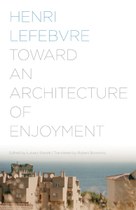Society and Space: Łukasz Stanek on Henri Lefebvre
 Stuart Elden: In your authored book, Henri Lefebvre on Space: Architecture, Urban Research, and the Production of Theory, you convincingly demonstrate that Lefebvre’s work on space and urban questions should be seen as much an engagement with planners, urban developers and architects, as with philosophers and theorists. Could you say something about that project, and how it led you to look at archival materials as much as Lefebvre’s published works and those of his academic interlocutors?
Stuart Elden: In your authored book, Henri Lefebvre on Space: Architecture, Urban Research, and the Production of Theory, you convincingly demonstrate that Lefebvre’s work on space and urban questions should be seen as much an engagement with planners, urban developers and architects, as with philosophers and theorists. Could you say something about that project, and how it led you to look at archival materials as much as Lefebvre’s published works and those of his academic interlocutors?
Łukasz Stanek: My interest in Lefebvre’s theory goes back to an empirical case: Nowa Huta, a new town constructed by the Polish socialist regime since the late 1940s close to Kraków. I was a student of architecture in Kraków in the early 2000s, and I was very intrigued by Nowa Huta, both because of its excellent urban plan and because of the fact that the development of this city was dependent on its mass media representations. In fact, since the beginnings of Nowa Huta and long after its inclusion into the administrative unity of Kraków, its development was defined by a logic of “catching up” with its mass media image as the young, airy, modern, humane, green, wealthy, atheist, socialist city. Yet after the end of socialism in 1989, this image of Nowa Huta clashed with an opposite one: that of the city of retired workers and unemployed youth, with crumbling infrastructure and an ecological catastrophe.
By: Stuart Elden
Story Date: 2014-05-07T04:00:00+00:00



